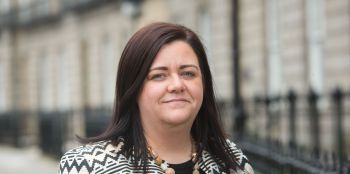Mention “land registration” and the images that come to mind may involve ancient title deeds in barely legible script, parchment, dust, and a smattering of cobwebs. After all, Scotland’s General Register of Sasines – ground-breaking at the time – dates back to 1617.
Far less likely to spring to mind is a trail-blazing, twenty-first-century system that will have all Scottish land on a new digital map-based Land Register by 2024.
With approximately 30% of land currently registered, Registers of Scotland has introduced ‘Keeper-Induced Registration’, or KIR, to accelerate the process. Rather than rely on ‘trigger events – such as sale of land – or wait for owners to register land voluntarily, it is registering the land itself.
Keeper-Induced Registration can apply to homeowners, rural landowners and businesses alike. And if you live in certain postcodes in Angus, Midlothian, Glasgow or Dumbarton, it may already have happened to your property.
On the face of it, KIR seems like an easy option for property owners, with no registration fees payable to Registers of Scotland, and no application paperwork to fill in.
However, leaving registration to the Registers means owners have no control over the process.
Firstly, errors and inaccuracies may creep in during KIR, especially if there are issues around unfenced boundaries, land outside fences, or rights of access. If this happens, owners may face high costs to rectify a mistake or prove their title.
Secondly, title deeds from the old Sasine Register often overlap. So those who wait for KIR or procrastinate on voluntary registration may risk a neighbour pipping them to the post to register a piece of land.
By being proactive on voluntary registration, homeowners are better placed to control the process themselves. They can prevent errors, get clarity over boundaries (being the first to register a piece of land may strengthen your title in the event of an overlap) and obtain a state-backed guarantee of title.
In addition, benefits such as making your property more marketable, as well as speeding up the conveyancing process if you come to sell, make it worth thinking about.
If you would like more information on KIR and voluntary registration please get in touch with our rural team who would be happy to help you.














